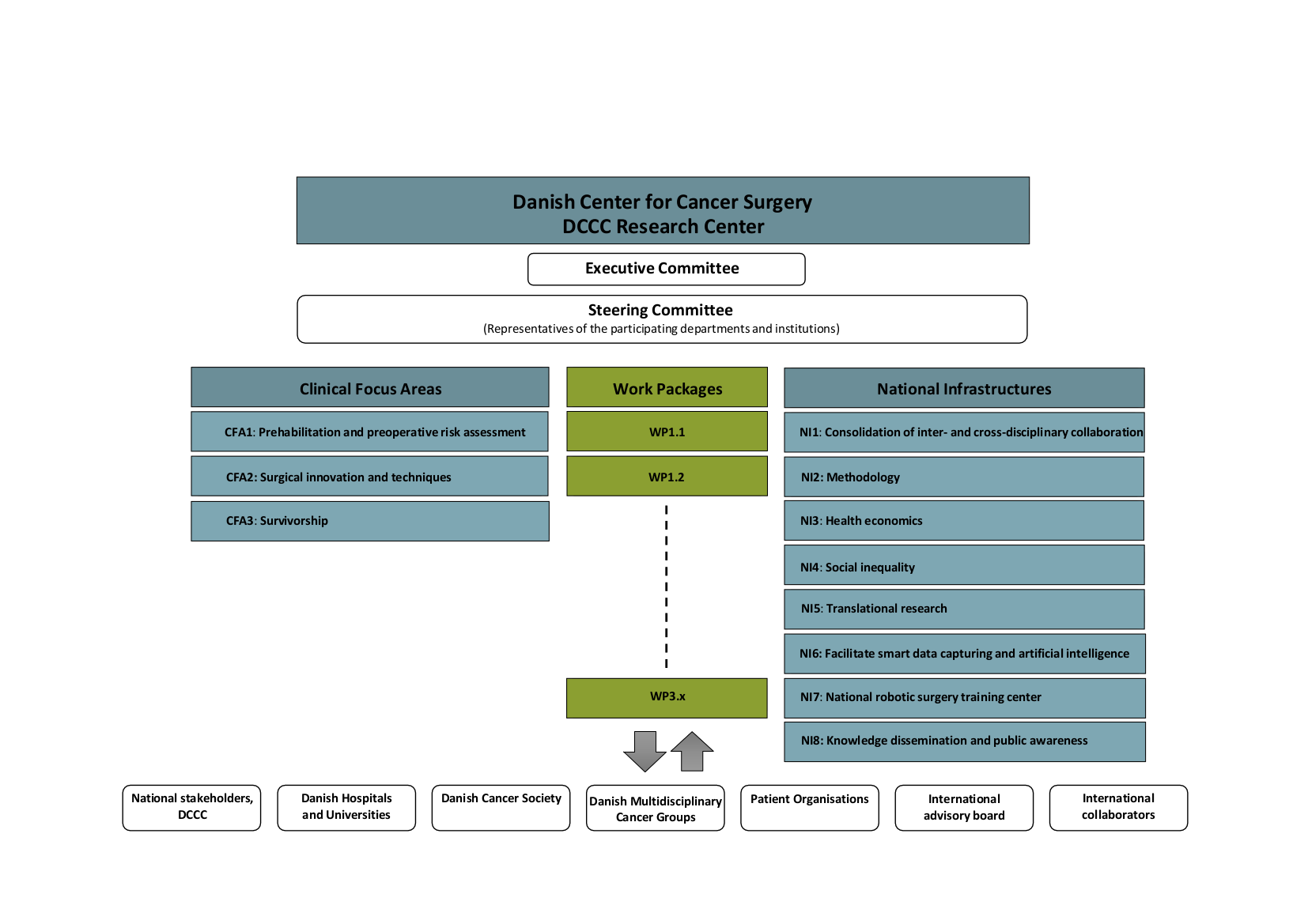The Danish Center for Cancer Surgery - ACROBATIC - has been established as a broad national, cross- and interdisciplinary collaboration across the 11 Danish Mutidisciplinary Cancer Groups (DMCGs), where surgery is an essential part of the treatment.
The overall goal of the center is to create evidence for a surgical cancer treatment which to a much greater extent than at present is tailored to the individual patient. Through cross-sectional and national clinical intervention studies, the aim is to focus on three clinical areas:
1. Prehabilitation and preoperative risk assessment
Some cancer patients are not offered surgery due to competing diseases or fragility, or they get a long aftermath with postoperative complications. It is a goal to investigate:
-
- whether prehabilitation, ie improving the general condition of a frail patient before surgery, can change the picture.
- to be able to better predict the individual patient's risk of e.g. complications via models based on data from national registers.
2. Surgical innovation and techniques
New surgical methods and techniques are implemented differently within the cancer surgical specialties. With between specialties anchored in the center, the goal is set to ensure:
-
- that techniques that have gained ground within one cancer should also be investigated for beneficial effect for other cancers.
- that experimental surgery is performed uniformly and recorded throughout the country, i.a. by establishing a national platform for experimental surgery.
- that the applicability and impact assessment of new methods is implemented systematically and on the basis of evidence in clinical practice.
3. Survivorship
Follow-up after treatment of cancer has for years primarily consisted of established scan checks. But the risk of relapse varies and the individual patient has different needs - such as treatment of late effects.
-
- The goal is to develop a person-centered and more tailored follow-up after surgery.
The patient's follow-up is desired to be guided through digital methods, where required mapping with a focus on quality of life, biomarkers and late effects. Where digital methods are not a help, other approaches will be developed to ensure equality in the follow-up phase.
The research centre's broad collaboration is led by professor and consultant Lene Hjerrild Iversen.

